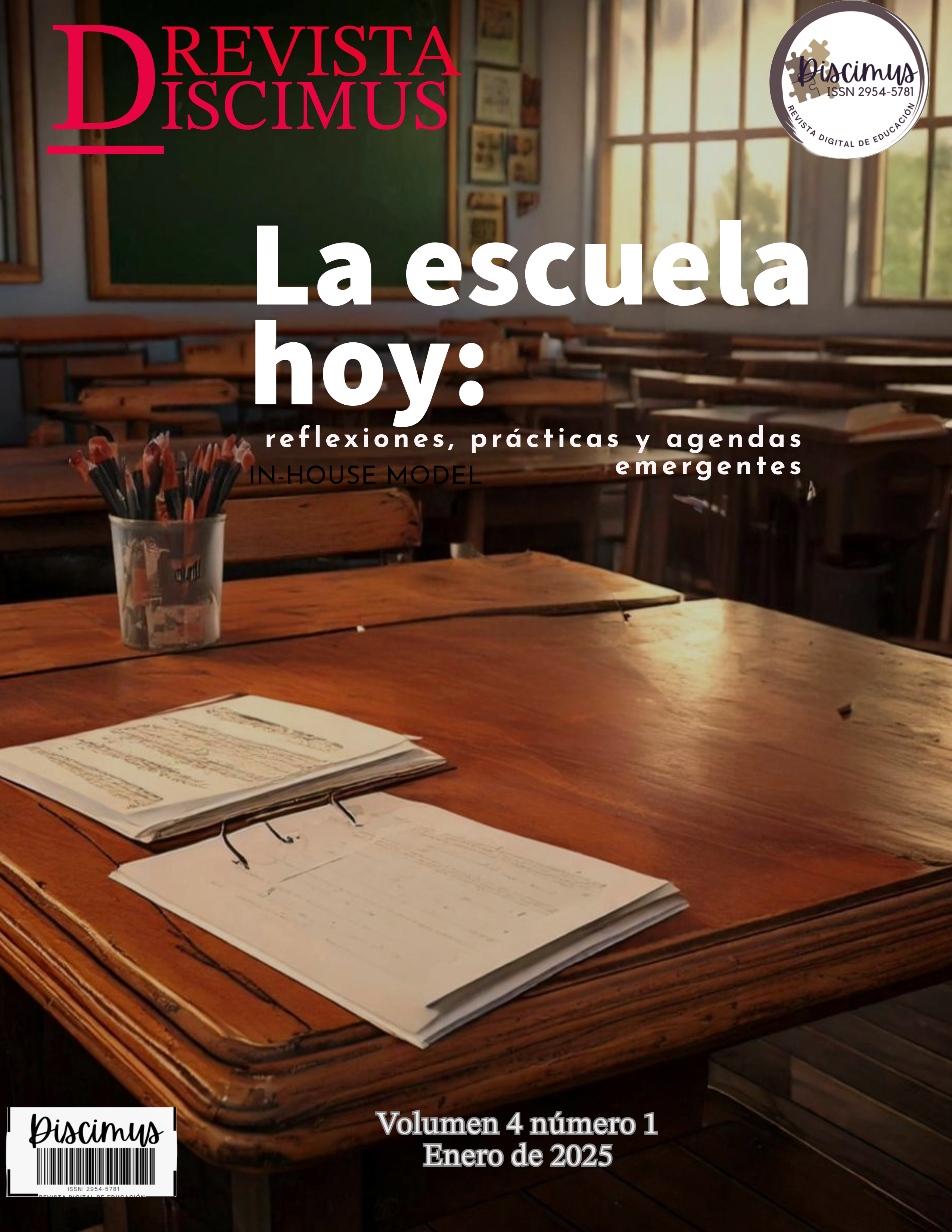Teaching ethics: an exercise of acknowledging the Other
Main Article Content
Abstract
This article presents the discourses which revolve around the contribution of the Ethics class since 2020 to the development of critical thinking. It is based on the case study of the Colegio de Nuestra Señora del Buen Consejo located in Bogotá. This study is part of a qualitative analysis of the interviews conducted with the educational community (students, parents, and administrators). As results, it is shown that the teaching of ethics from an ethical-critical pedagogy fosters in the student the development of critical thinking and a new personal ethos that leads them to open their gaze towards the construction of a different society from concrete action and social engagement.
Downloads
Article Details
Section

This work is licensed under a Creative Commons Attribution-NonCommercial-ShareAlike 4.0 International License.
Open Access Policy at Discimus Journal
Discimus Journal is committed to the promotion of free circulation of scientific and academic knowledge, simultaneously ensuring appropriate acknowledgment for our authors while adhering to the ethical principles of scientific publishing. In alignment with this goal, Discimus publishes all its articles under the ATTRIBUTION-NONCOMMERCIAL-SHAREALIKE 4.0 INTERNATIONAL CC BY-NC-SA 4.0
How to Cite
References
Boff, L. (2001) El cuidado de lo esencial, Ética de lo humano, compasión de la tierra. (1ª ed.) Trotta.
Bonache, J. (1999) El estudio de casos como estrategia de construcción teórica características, críticas y defensas. Cuadernos de economía y dirección de empresas. 3 (3), 123 – 140.
Congreso de la República de Colombia. (08 de febrero de 1994). Ley general de Educación. [Ley 115 de 1994]. https://www.mineducacion.gov.co/1621/articles-85906_archivo_pdf.pdf
Cortina, A. (1996) El quehacer ético, Guía para la educación moral. (1ª ed). Aula XXI Santillana.
Foucault, M. (1993) Las redes del poder. (1ª ed). Almagesto.
Freire, P. (2005) Pedagogía del oprimido. (2ª ed.) Siglo XXI.
Husserl, E. (1998). Invitación a la fenomenología. (1ª ed). Paidós.
Lévinas, E. (1987) Totalidad e infinito, ensayo sobre la exterioridad. (1ª ed.) Sígueme.
López Arboleda, G., Marroquín Navarro, L., y Rodríguez Bustamante, A. (2014) El maestro como arquitecto y constructor de pensamiento. Revista Fundación Universitaria Luis Amigó. 1 (1), 63 – 68.
Ministerio de Educación Nacional. (07 de junio de 1998). Lineamientos Curriculares del Área de Ética y Valores Humanos. https://www.mineducacion.gov.co/1780/articles-339975_recurso_9.pdf
Neira, E. (2019) Una comunidad en busca de la verdad, hacia un modelo educativo Agustiniano. (1ª ed.) PPC.
Okuda, M., Gómez C. (2005) Métodos en investigación cualitativa: la triangulación. Revista Colombiana de Psiquiatría, 34 (1), 118 – 124.
Posner, G (1998) Análisis del currículo. (2da. ed). McGraw-Hill

